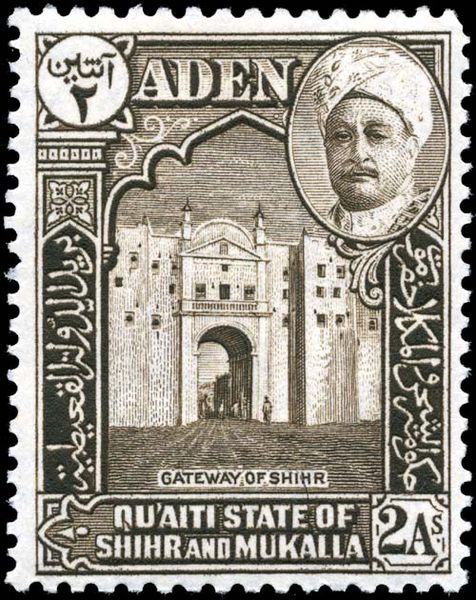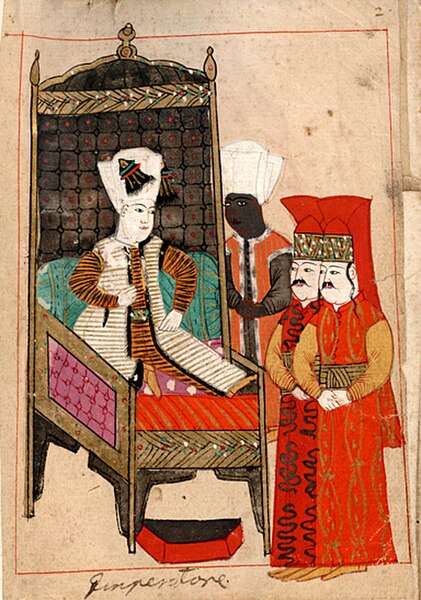Qu'aiti, or the Qu'aiti Sultanate of Shihr and Mukalla, was a sultanate in the Hadhramaut region of the southern Arabian Peninsula, in what is now Yemen. Its capital was Mukalla, and it was divided into six provinces including Al-Mukalla, Ash-Shihr, Shibam, Du'an, the Western Province and Hajr. Apart from Al-Mukalla, Ash-Shihr and Shibam were the Sultanate's major cities.
Asaf Jah VII the Nizam of Hyderabad Deccan with the Al-Quaiti Royal Family
Umar bin-Awad al-Quaiti (1922–36)
1942 stamp depicting Sultan Saleh and the city gate of Ash Shihr
1946 Victory issue
Sultan is a position with several historical meanings. Originally, it was an Arabic abstract noun meaning "strength", "authority", "rulership", derived from the verbal noun سلطة sulṭah, meaning "authority" or "power". Later, it came to be used as the title of certain rulers who claimed almost full sovereignty without claiming the overall caliphate, or to refer to a powerful governor of a province within the caliphate. The adjectival form of the word is "sultanic", and the state and territories ruled by a sultan, as well as his office, are referred to as a sultanate.
Suleiman the Magnificent, the longest-reigning sultan of the Ottoman Empire
Ottoman Sultan Mehmed IV attended by a eunuch and two pages.
The valide sultan (sultana mother) of the Ottoman Empire
Tuman bay II, last of the Mamluk Sultans.








